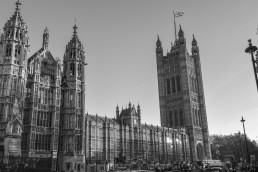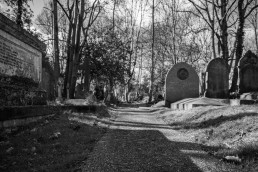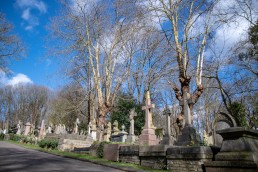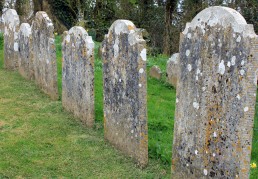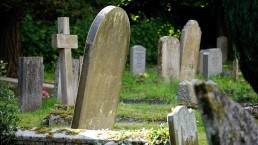Coronavirus legislation implements swift changes
MP’s are to debate new legislation that will bring in a package of emergency measures to help tackle the coronavirus outbreak.
Whilst the legislation deals with a raft of proposals on public health grounds, medical provision and border controls, it also deals with the possible increase in mortality rates.
The legislation proposes significant changes to the way deaths are recorded, which includes the easing of requirements upon coroners to sign death certificates when other health practitioners aren’t available.
The proposed legislation will also allow funeral directors to register deaths on behalf of families if they are unable to make the arrangements due to being quarantined. Registrars will also be allowed to accept electronic copies of documents to carry out the registration.
The requirement for a second confirmatory medical certificate to be presented before a cremation takes place is to be removed to free up medical staff.
With regards to the “management” of deaths, local authorities will be allowed to streamline their services, which includes increasing the operating times for crematoriums and directing the movement of bodies. This will include co-opting forms not involved in the funeral sector to provide support where necessary.
The National Association of Funeral Directors report, on their website, that they support these changes to legislation, calling on the government to ensure that funeral service workers are key workers. They state that they “believe the legislation, combined with ongoing dialogue at both a national government and local resilience forum level, will enable the funeral profession to properly care…at a very difficult time”.
Some local authorities have already taken measures to protect the public and staff during the outbreak. Several crematoria, including Yeovil Crematorium run by South Somerset District Council, have suspended public facing services during the outbreak. Staff at the Yeovil site will still be operating services and responding to telephone calls and email enquiries, but waiting rooms, offices and chapels will be closed to the public. Cremations will still take place, but all public services will be suspended due to social distancing. Grounds will remain open to the public.
Cllr Peter Gubbins of South Somerset DC stated that “This has been an incredibly hard decision for us to make but the safety of the public and those that operate the site has to be our priority. The risks of continuing to hold public services at this time are too great and we will be working with local funeral directors to ensure they are fully informed. This is not something the council wants to do, nor takes lightly but, given the difficult circumstances, is a sensible course of action.”
PHA Funerals - "Unfit for purpose"
The legislation that gives local authorities the statutory powers to carry out funerals is not fit for purpose.
That’s what council officers told us at the second Finders International Public Health Act Funerals conference, which took place on 2nd May this year, and was attended by representatives of councils from all over England and Wales.
The legislation, which has been in place for more than thirty years, does not consider how attitudes have changed towards funerals in society and how we carry out funerals. Families are more fragmented and don’t necessarily feel obliged to make funeral arrangements for next of kin they may have had little or no contact with. Given recent rises in the amount of funerals undertaken by local authorities, it is only set to increase in the near future.
Minimum standards
Council officers at the conference felt that any reform should set out a minimum standard, although they could not agree on how this might be enforced. Some local authorities opt to cremate whilst others bury, but there is no standard practice. Should legislation make sure a deceased person’s wishes are adhered to (if they are known) and how would this be done?
As the Competition and Markets Authority is carrying out a review of the funeral industry in the wake of rising costs and is proposing a funerals regulator, perhaps the role of ensuring standards could be placed with them?
The majority thought that the word ‘paupers’ should not be used, with some officers reporting they found it to be offensive. Officers felt that the word does not show the deceased dignity and respect.
Little to no funding
Another point raised at the conference is that there is little or no funding within authorities for the provision of statutory funerals. Further discussions took place about a national funeral fund, with a radical suggestion that there should be a state grant paid from National Insurance contributions.
Certainly, everyone agreed that the Department of Work and Pensions (DWP) Social Fund is not fit for purpose, and a new way of state assistance needs to be found. The vast majority reported how difficult it is for people to claim and how little they receive to pay towards funerals from the DWP.
Staff have called for better awareness of their role by financial institutions. Once a person dies, GDPR does not apply to the deceased. Many officers reported their experiences where banks and other institutions make it extremely difficult for them to discover if the deceased left any assets.
Access to online accounts
They also said it was difficult to access the deceased’s emails and social media accounts, as sometimes emails and social media accounts can help officers trace families easily and quickly.
David Lockwood, Finders International Public Sector Development Manager and a former Public Health Act Funerals Officer, said: “It’s clear how dedicated council officers are in providing the best service possible despite the severe financial restrictions in place.
“These officers deserve the recognition for the service they provide to their communities and their continued dedication. We at Finders International do everything possible to support them with our free events and the advice we offer on our website, and we will continue to do so.”
Finders International has a funeral fund that can be used by public sector bodies to subsidise public health act funerals in cases that meet the criteria. Find out more about our service here.
CMA to carry out further investigation of Funeral market
The Competition and Marketing Authority have announced that they will be undertaking an "in-depth" market investigation into the Funerals sector.
This follows the publication of its interim report in November 2018 and it's subsequent public consultation as reported on this site in early March. The CMA report that the vast majority of responses were positive but they still have their concerns over the effectiveness of competition. The investigation will focus on the supply of funeral and crematoria services.
A number of large companies responded to the investigation along with many members of the public. The responses from individuals can be read here on the CMA website. Individuals responding noted price discrepancies between crematoria, the practice of charging more to a non-resident, that the information provided on the GOV.UK website was poor, that restrictive practices were in place in certain creamtoria and that GP's shouldnt be charging for Death Certificates.
The CMA's headline concerns included the rising cost of funerals, the vulnerability of people when organising funerals, reluctance of some firms to publish clear pricing and the rise in Crematoria charges.
The investigation will further examine the concerns identified, the CMA has the power to make legally binding orders requiring changes be made. A group chaired by Martin Coleman will investigate. No date has been set for the panel to report back.
More on this can be read on the CMA website.
Increase in burial costs behind surge in 'pauper's funerals'
These services – officially known as public health funerals – are council-funded services held when the deceased’s family either cannot be found or are unable to meet the burial costs.
According to a report considered by the overview and scrutiny committee on Monday, Wealden District Council organised and paid for 16 such funerals last year.
Council officer Catherine Beaumont said: “We certainly have noticed, over the last five or six years, a gradual increase in the number of these public health funerals.
“Basically this is because the cost of funerals in general have tripled in cost. So what is happening is that people are struggling with even doing a basic funeral.
“We have had 13, I think, this year since April, so there is a general increase over time in this type of funeral. We are trying to put more resources into it, but it is something that can be a little bit labour intensive.”
According to the report, the council-funded funerals this year included a service for an unidentified woman found dead at Cuckmere Haven, attended by more than 100 people in September.
Original story via on The Argus
Daily Mirror highlights Funeral Poverty issues
The Daily Mirror has recently highlighted the growing issue of Funeral Poverty and how it can affect individuals.
The article, published on the 10th July, highlights the issues that surround the death of a loved one and the problems it can leave bereaved families with the rising costs of funeral provision.
Read the full article here Daily Mirror Article
ITN highlight rise in “Paupers” Funerals
ITN highlighted the rise of funerals undertaken by Local Authorities and the difference in services provided by Authorities on their main news bulletins on Friday 15th June.
Watch the report and read more about it on the ITV news website.
Death in Data
A recent article on the BBC website highlighted an expected spike in deaths over the next few years, thus adding to pressure already placed on Local Authorities carrying out Public Health Act funerals.
As life expectancies rise the amount of deaths naturally falls but those people will inevitably pass away at some stage leading to the expected increase.
With the recent Royal London report highlighting the rise in provision of Public Health Act Funerals by Local Authorities it seems that there may be a perfect storm brewing from Councils already suffering from dramatic budget cuts over the past few years.
The BBC article stems from research and a campaign to raise awareness by the Dying Matters Campaign. The article states that "Talking about dying makes it more likely that you, or your loved one, will die as you might have wished. And it will make it easier for your loved ones if they know you have had a 'good death'."
You can read the full article on the BBC website here.
Funeral prices and plans to be reviewed
UK funeral prices to be probed
The BBC is reporting that there are to be two separate reviews carried out by the government into the price of funerals and concerns over pre-paid funeral plans.
The Competition and Markets Authority (CMA) is reviewing funeral costs, "to ensure that people are not getting a bad deal". The investigation will focus on funeral prices to ensure that the public are getting a fair deal. The article goes on to state that the average cost of a funeral in 2017 was £3,800.
Meanwhile the Treasury has started a review of pre paid funeral plans following complaints from consumer groups that people are finding they have to pay additional costs not covered in a plan that were originally thought to be included. The outcome could be tougher regulation.
The full article can be read here:
http://www.bbc.co.uk/news/business-44327899
Finders International have their Finders International Funeral Fund to support Local Authorities with the responsibility of carrying out pre-paid funerals. Payments from the fund can be applied for by a Local Authority who has had to arrange and pay for the funeral of a resident with no known next of kin or any assets. The fund isn't open to the general public, but Finders have had an increase in enquiries from the public for support to pay for Funerals.
Help and advice is available from Quaker Social Action, who have been campaigning relentlessly to highlight the growing problem of funeral poverty.
More details on QSA can be found on their website:
https://www.quakersocialaction.org.uk/we-can-help/helping-funerals/down-earth
The Rising Number of Public Health Funerals
Sometimes called ‘pauper’s funerals’, the Public Health (Control of Disease) Act 1984 places a statutory duty on councils and health boards to bury or cremate anyone who has died or been found dead in their local area if no other arrangements have been made or are being made otherwise.
In recent years, the numbers of such funerals have soared because of rising funeral costs and the increase in the numbers of people dying alone. A Royal London report at the beginning of the year reported that local authorities spent more than £4 million on public health funerals in 2015/16, an increase of 12 percent over the last five years.
At the same time, the cost of public health funerals increased by 36 percent. Freedom of Information data taken from 260 councils revealed that 3,784 public health funerals took place in 2015/16. The biggest percentage increase in public health funerals was for councils in the East of England—up 36 percent.
London local authorities experienced the most significant increase in costs, with a 51 percent rise in the average funeral cost - £1,004 in 2015/16, compared to £666 in 2011/12.
Royal London’s funeral cost expert, Louise Eaton-Terry, said it was always upsetting when the deceased had no one to arrange a funeral, or that their family simply couldn’t afford the expense. It was clear, she added, that councils were facing increasing pressure to accommodate the number of public health funerals and that the Government needed to take urgent action to tackle rising funeral poverty.
A Devonshire report earlier this month backed the national trend. Torbay Council spent more than £45,000 paying for public health funerals in 2017/18—a total of 25 funerals. In its worst year (2015/16), the council paid for 36 funerals.
Nick Pannell from the Friends of Factory Row, a homeless hostel in Torquay, said each of the public health funerals were a “personal tragedy”, and that the area had a “vulnerable, homeless population”.
What happens at a public health funeral? The service varies between areas, but it’s mostly a “no-frills” event that includes the collection and storage of a body, a basic coffin, burial in a public grave or a cremation, and vehicle/bearers to transport and help in the burial of the deceased. The local authority or health board decides on the funeral director, date and time and family members can attend if they wish—providing they can be located.
David Lockwood, Finders International’s public sector development manager, said: “Finders International runs a funeral fund which can be accessed by local authorities and health boards. We’ve pledged to put £10,000 a year into this important fund as this isn’t an issue that’s going to go away.
“Sadly, Torbay Council’s experience isn’t limited to that area. Across the UK, councils and health boards face the same problem.”
You can read more information about the Finders International Funeral Fund here.

